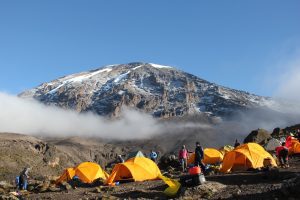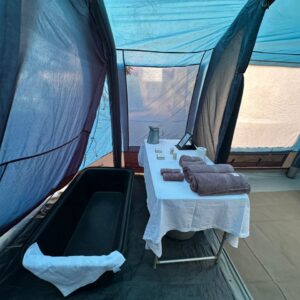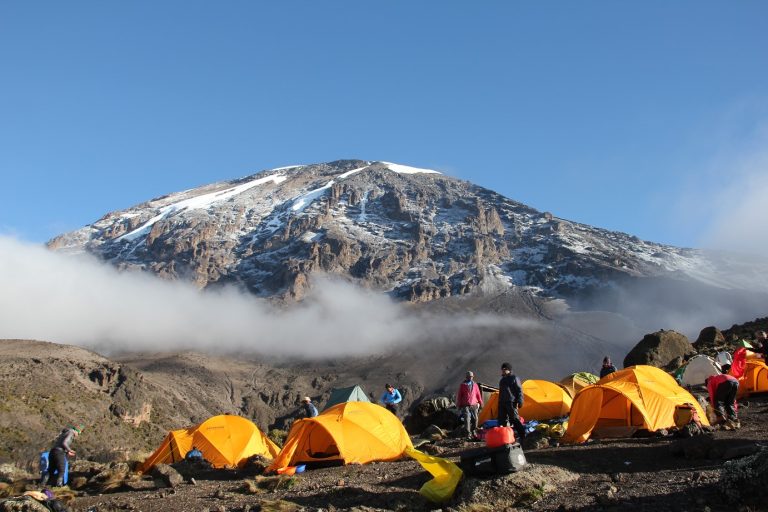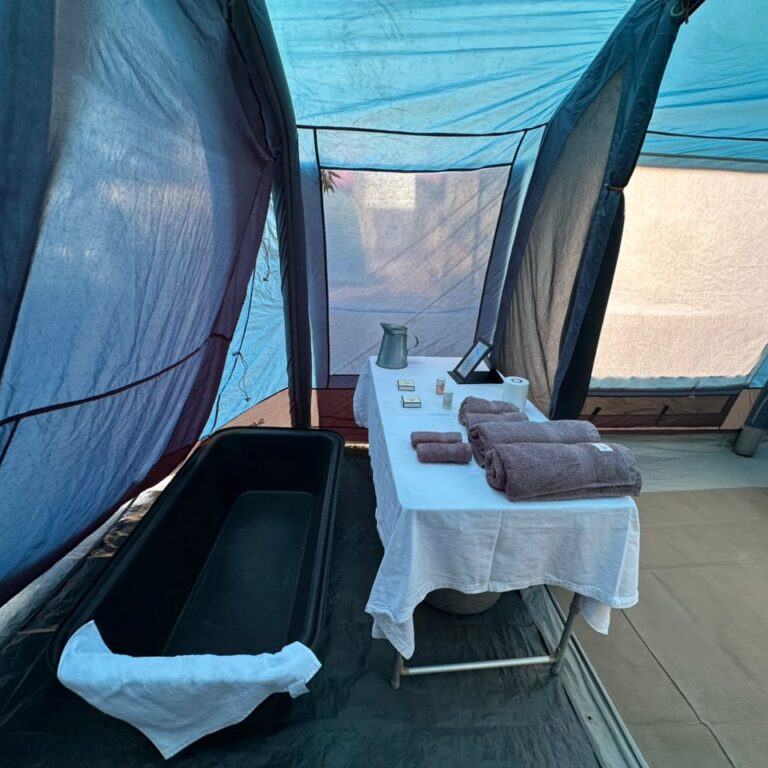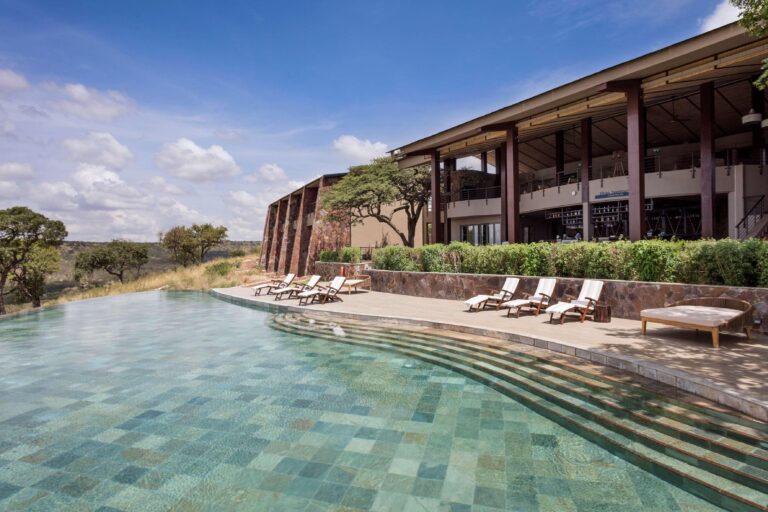Tanzania, a land of natural wonders and rich cultural heritage, is located in East Africa, bordered by Kenya, Uganda, Rwanda, Burundi, the Democratic Republic of Congo, Zambia, Malawi, and Mozambique. The country boasts an array of breathtaking landscapes, from the iconic plains of the Serengeti to the towering peak of Mount Kilimanjaro. With a population of over 60 million people, Tanzania is a melting pot of cultures, languages, and traditions. The country’s diverse wildlife and pristine beaches make it a top destination for travelers seeking adventure, relaxation, and everything in between.
Best Time to Visit Tanzania
The best time to visit Tanzania is during the Dry season, from June to October, when wildlife viewing is generally at its best. This is also the best time to see the wildebeest migration in Serengeti National Park. The most reliable time to see the wildebeest calving is January to February. This period also offers the best weather conditions for climbing Mount Kilimanjaro and enjoying the coastal beaches of Zanzibar. The wet season, from November to May, brings lush landscapes and fewer tourists, but some parks may be harder to access due to heavy rains. The wildebeest migration, one of the world’s most spectacular wildlife events, can be witnessed in the Serengeti from January to March or during the river crossings in July and August.
Getting Into & Around Tanzania
Tanzania is accessible by air, with major international airports in Dar es Salaam, Kilimanjaro, and Zanzibar. Direct flights are available from Europe, the Middle East, and other African countries. Once in Tanzania, domestic flights are the quickest way to travel between cities and national parks. Road travel is also common, with buses and private transfers available, but be prepared for long distances and varying road conditions. If you’re looking to explore the islands, ferries operate between the mainland and Zanzibar.
Visa & Travel Requirements
Most visitors to Tanzania require a visa, which can be obtained online before arrival or at the airport upon entry. Ensure your passport is valid for at least six months beyond your planned departure date. Travelers should also check for any necessary vaccinations, such as yellow fever, especially if coming from or transiting through a yellow fever endemic area. It’s advisable to carry a copy of your travel insurance, as medical facilities in remote areas can be limited.
Tanzania Safari Cost
The cost of a safari in Tanzania varies depending on the season, accommodation, and length of stay. On average, a mid-range safari can cost between $300 to $600 per person per day, including park fees, meals, and guided tours. Luxury safaris can exceed $1,000 per person per day, offering high-end lodges, private guides, and exclusive experiences. Budget travelers can find more affordable options, such as camping safaris, which start at around $200 per person per day. Keep in mind that park entry fees, especially for popular parks like Serengeti and Ngorongoro, can add up, so plan your budget accordingly.
Currency and Exchange Rate
The official currency of Tanzania is the Tanzanian Shilling (TZS). US dollars are widely accepted, especially in tourist areas, but it’s advisable to carry shillings for smaller transactions and in remote regions. Exchange rates fluctuate, so it’s wise to check the current rate before your trip. ATMs are available in major cities, but may be scarce in rural areas, so carry enough cash for your needs. Credit cards are accepted at most hotels and restaurants, but may incur a surcharge.
Language & Communication
Swahili is the official language of Tanzania, spoken by nearly everyone in the country. English is also widely spoken, especially in the tourism industry, so communication should not be an issue for most travelers. Learning a few basic Swahili phrases, however, can enhance your travel experience and help you connect with locals. Mobile phone coverage is generally good in urban areas, but can be spotty in remote regions. Internet access is available in most hotels and lodges, but speeds may vary.
What to Pack for Tanzania
Packing for Tanzania depends on your itinerary, but some essentials include lightweight clothing, a hat, sunscreen, and insect repellent for the tropical climate. If you’re planning a safari, neutral-colored clothing is recommended to blend in with the environment. For mountain climbing or visiting highland areas, bring warm layers as temperatures can drop significantly. A good pair of walking shoes, a reusable water bottle, and a first aid kit are also must-haves. Don’t forget your camera to capture the stunning landscapes and wildlife.
Where to Stay in Tanzania
Tanzania offers a wide range of accommodation options, from budget hostels to luxury lodges. In cities like Dar es Salaam and Arusha, you’ll find international hotels, boutique guesthouses, and budget-friendly hostels. On safari, accommodation ranges from basic campsites to opulent tented camps and lodges with all the amenities. Zanzibar boasts a variety of beachfront resorts, from rustic bungalows to five-star hotels. For a unique experience, consider staying in a traditional Maasai village or on a coffee plantation in the highlands.
Things to Do & See in Tanzania
Tanzania is a treasure trove of activities and attractions. Safaris are the main draw, with the Serengeti, Ngorongoro Crater, and Tarangire National Park offering some of the best wildlife viewing in the world. For adventure seekers, climbing Mount Kilimanjaro is a must-do, while those looking for relaxation can unwind on the white sands of Zanzibar. Don’t miss the chance to visit Stone Town, a UNESCO World Heritage site, or explore the diverse marine life in the coral reefs around Mafia Island. For a cultural experience, visit a Maasai village or the ancient rock paintings at Kondoa.
Tanzania Travel Safety
Tanzania is generally safe for tourists, but like any destination, it’s important to stay aware of your surroundings. Petty crime, such as pickpocketing, can occur in crowded areas, so keep your valuables secure. When traveling between cities, it’s best to use reputable transportation services. If you’re planning to hike or go on a safari, always follow the guidance of your tour operator or guide. Health-wise, malaria is present in some areas, so take appropriate precautions, including anti-malarial medication and using insect repellent.
Some Additional Information
Tanzania is a culturally rich country with over 120 ethnic groups, each with its own traditions and customs. Respect local customs, such as dressing modestly in rural areas and during visits to religious sites. Tanzanian cuisine is diverse, with dishes like ugali (a maize-based staple). Nyama choma (grilled meat), and pilau (spiced rice) being popular. Tap water is not safe to drink, so stick to bottled or boiled water. Tanzania known for its vibrant markets, where you can shop for local crafts, textiles, and spices.
Tanzania Travel Aspect
Tanzania’s diverse landscapes, rich wildlife, and cultural heritage make it a top destination for travelers of all kinds. Whether you’re seeking adventure, relaxation, or a mix of both, Tanzania offers something for everyone. The country’s national parks and reserves provide unforgettable safari experiences. While the coastal regions and islands offer stunning beaches and world-class diving opportunities. With a welcoming population and a range of accommodation options. Tanzania is a destination that caters to all budgets and travel styles.
Top Destinations in Tanzania: Must-See Places
Serengeti National Park: The Serengeti is arguably the most famous wildlife sanctuary in the world. Known for its vast plains and the Great Migration, it’s a haven for wildlife enthusiasts. Game drives in the Serengeti offer sightings of the Big Five – lions, leopards, elephants, buffalo, and rhinos – along with cheetahs, giraffes, and countless other species.
Ngorongoro Crater: Often referred to as the “Eighth Wonder of the World,” Ngorongoro Crater is the world’s largest inactive volcanic caldera. The crater’s floor is a natural enclosure for over 25,000 large animals, including some of the highest densities of lions in Africa. Exploring the Ngorongoro Crater provides an unforgettable experience with close encounters with wildlife in a unique setting.
Mount Kilimanjaro: For those with a thirst for adventure, climbing Mount Kilimanjaro is a bucket-list experience. As the highest peak in Africa, Kilimanjaro attracts trekkers from around the globe. The climb is challenging but accessible to those with good fitness, and the sense of achievement upon reaching Uhuru Peak is unparalleled.
Zanzibar Archipelago: Zanzibar offers a tranquil escape with its pristine beaches, historic Stone Town, and vibrant culture. Exploring Zanzibar allows you to dive into the rich history of the spice trade Tanzania Travel Guide. Enjoy water sports, or simply relax on the powdery white sands of Nungwi Beach.
Tarangire National Park: Less crowded than other parks. Tarangire National Park is known for its large elephant herds and ancient baobab trees Tanzania Travel Guide. The park is particularly beautiful during the dry season when the Tarangire River attracts a plethora of wildlife.
Tanzanian Cuisine: A Culinary Adventure
Tanzanian cuisine is a delightful mix of flavors, influenced by African, Indian, and Arabic traditions. Must-try dishes include:
Ugali: A staple made from maize flour, often served with meat, fish, or vegetable stews.
Nyama Choma: Grilled meat, usually goat or beef, is a popular dish across Tanzania.
Zanzibari Cuisine: Enjoy seafood delights like octopus curry, biryani, and pilau in Zanzibar.
Don’t miss the opportunity to taste Tanzanian street food, such as samosas, chapati, and mandazi (fried doughnuts) with Incredible Journeys tour operator.
Experiencing Tanzanian Culture: A Journey Beyond Nature
Tanzania’s culture is as rich and diverse as its landscapes. The Maasai people, with their distinctive red shukas and beadwork, are among the most recognized tribes Tanzania Travel Guide. Visiting a Maasai village offers insight into their traditional way of life, including cattle herding, song, and dance.
Swahili culture is also prominent, especially in coastal areas like Zanzibar Tanzania Travel Guide. The Swahili language, a blend of Bantu and Arabic influences. Widely spoken, and learning a few phrases will enhance your travel experience.
Tanzania Travel Guide FAQs
Tanzania offers breathtaking safaris in parks like Serengeti and Ngorongoro Crater. The best time to visit is during the dry season (June to October), ideal for wildlife viewing. Travelers need a visa, and the currency is Tanzanian Shilling (TZS), though US dollars are accepted. Popular activities include safaris, trekking Mount Kilimanjaro, and relaxing on Zanzibar’s beaches. Ensure you’re vaccinated and take precautions against malaria. Tanzania is generally safe, with some areas requiring standard travel precautions.
Final Thoughts: Preparing for Your Tanzanian Adventure
Traveling to Tanzania is a rewarding experience that offers a blend of adventure, culture, and natural beauty. Whether you’re embarking on a thrilling safari, scaling the heights of Kilimanjaro, or soaking in the vibrant culture of Zanzibar, Tanzania promises memories that will last a lifetime.

